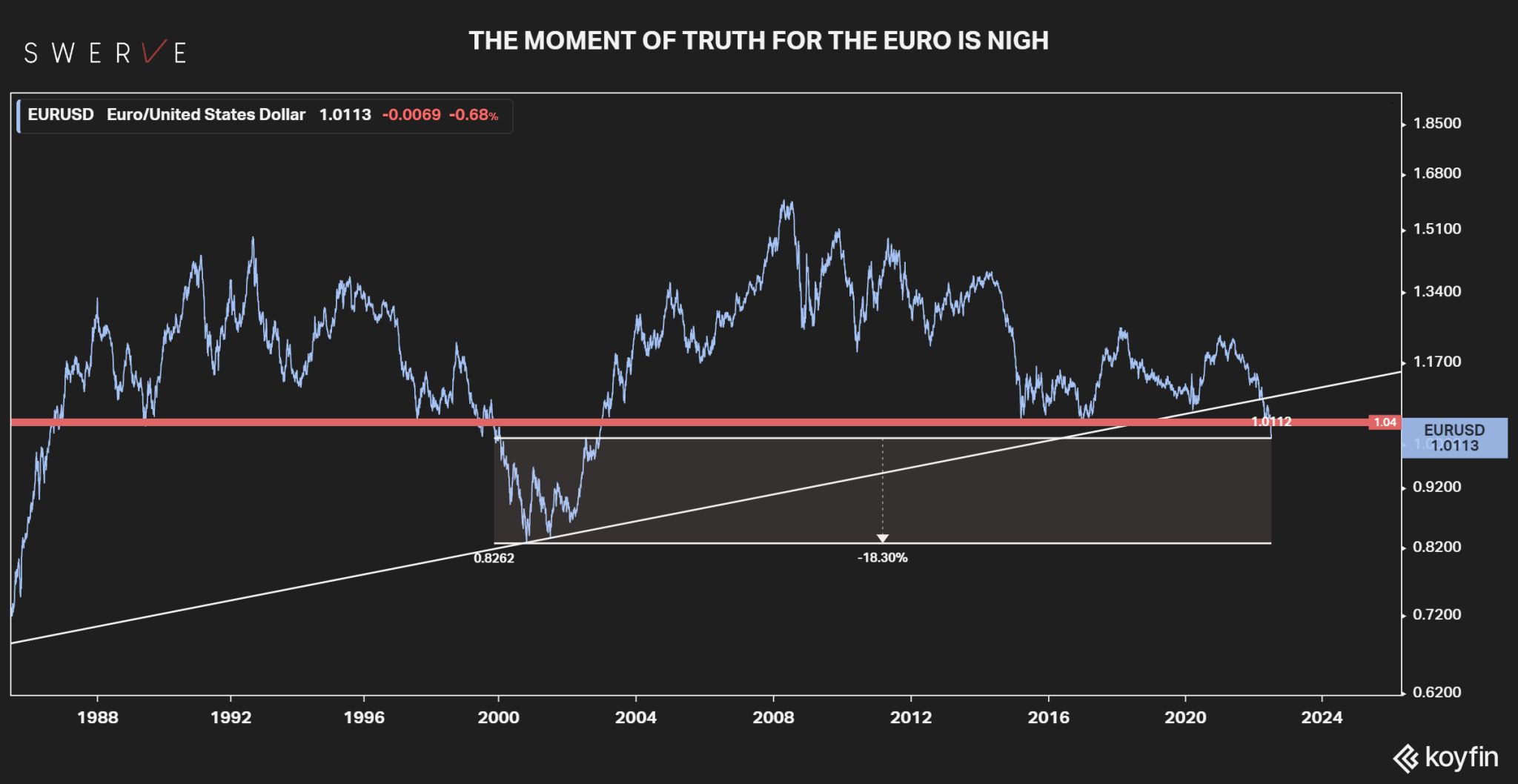The Moment of Truth for the Euro is Nigh
The #euro keeps depreciating and the parity with the USD is approaching (see chart). It is not surprising as while #inflation keeps rising the #eurozone (EZ) still has negative rates. It is terrible news for the monetary union as a weaker euro makes the price of commodities more expensive and therefore aggravates the already serious inflation problem.

The #euro keeps depreciating and the parity with the USD is approaching (see chart). It is not surprising as while #inflation keeps rising the #eurozone (EZ) still has negative rates. It is terrible news for the monetary union as a weaker euro makes the price of commodities more expensive and therefore aggravates the already serious inflation problem. Such an outcome has been clear for almost a year as prices started to rise (Apr 6 2021: https://lnkd.in/deqe_z9q). The ECB is unable to fight inflation as they cannot meaningfully tighten financial conditions without pushing the most indebted member countries into a fiscal crisis.
The new “anti-fragmentation instrument”, soon to be announced, is supposed to close the spread between Germany’s rates and the weaker countries’ without yet more balance sheet expansion as it would nullify the ECB’s effort to fight inflation. Even assuming enough political cover, any such instrument without strict limitations and conditionality would constitute blatant deficit financing, which is specifically prohibited by treaties and therefore illegal. Herein lies the fatal flaw; as demonstrated over the last decade, no meaningful fiscal tightening is politically feasible in the most indebted countries. A case in point is Italy; over the last decade the ECB bought >100% of the total net debt issued, yet the country’s debt to Gdp ratio increased from 120% in 2011 to 134% in 2019 before exploding to 151% in 2021.
The lethal combination of C19 and the Ukraine war have exposed the design flaw of the euro architecture; you can’t have a monetary union among countries with widely divergent fiscal policies. Draghi’s “whatever it takes” bought the current structure approximately a decade by turning the ECB into a “buyer of the last resort” but inflation changed everything. The moment of truth for the EZ is approaching; it is either going to be a fiscal union with significant transfer of resources among members or the fragmentation of the common currency area will be inevitable. History, data and political game theory suggest the latter. In the face of persistent stagflationary conditions, Brussel’s slow and dysfunctional process will not do and some member states, likely the strongest, may decide to revert to monetary sovereignty or, perhaps, to a smaller currency union with fiscally like-minded countries.
It is a concerning outlook for investors, especially in the approx euro-denominated $20 trillion bond market. Interest rates and debt levels in the EZ are respectively too low and too high and some painful adjustment is needed. The default will play out most likely with the devaluation of the currency in which the security is denominated whereby, for example, sovereign obligations are re-denominated from Euro to Lira or Drachma. Inflation will do the rest. As per EU equities, bank-heavy indexes will not fare better. Disclosure: Hold all assets mentioned. Not investment advice. Do your own research.